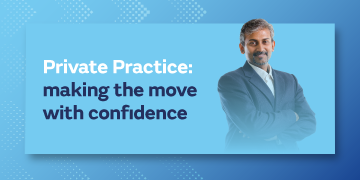Dealing with media enquiries about your patients
Post date: 07/04/2022 | Time to read article: 1 minsThe information within this article was correct at the time of publishing. Last updated 20/05/2022
Doctors are expected to protect patients’ confidentiality and follow GMC guidance on dealing with media enquiries involving patients. Breaking confidentiality, whether inadvertently or not, could lead to a complaint, disciplinary action, or regulatory sanction. However, saying “no comment” to a journalist can come across as defensive, and there are ways in which you can respond to media enquiries without breaching patient confidentiality.
You may not be able to comment about the specifics of a particular case, but you can explain why you can’t – because of your ongoing duty to maintain patient confidentiality, or because the case is the subject of ongoing legal proceedings. You can also just tell a journalist that you will come back to them, which will come across as cooperative. You can then seek advice on the best approach and response.
Specific comment
There may be occasions where it is appropriate for you to make a specific comment. For instance, if a patient has died expressing your condolences or regrets to the family may be the right thing to do.
It is wise to keep statements succinct and factual – about 150 words is a general guide. Column inches are limited, and a lengthy statement is likely to be edited, which could distort the meaning or alter the emphasis.
Involving others
It is advisable that you liaise with others involved, especially in secondary care settings, to agree on the approach and key messages. It might also be appropriate to let others close to you know in case they are approached by the media.
The media may also contact:
- the trust/commissioners/providers
- employers
- colleagues and professional partners
- those you live with/friends and family
- practice/clinic staff.
How Medical Protection can help
Media scrutiny could put your personal and professional reputation at risk.
Early advice from the Medical Protection Press Office can help to mitigate risks, assist you responding to journalists appropriately, and deal with the media on your behalf. Your first contact is likely to be with a medicolegal consultant, and they will advise whether the Press Office should be involved.
Media advice is available 24 hours a day, 7 days a week. During office hours (08.30 -- 17.30) you can reach the press office by emailing [email protected]. If you need support or advice out of office hours, please call +44 113 243 6436 and you will be connected to the duty press officer.
Further information on how the Press Office can help and full contact details can be found at: https://www.medicalprotection.org/uk/media-policy/press-support-for-members.

